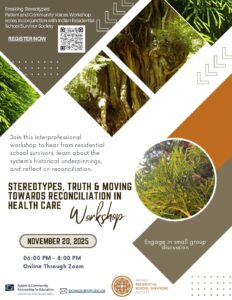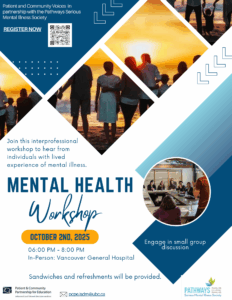Ways for Faculty to Get Involved
Contact us to request patient and community educators
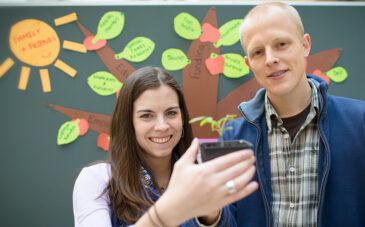
Tap into our Networks
We can help you to recruit through our large and diverse group of experienced patient educators and connections with community organizations.
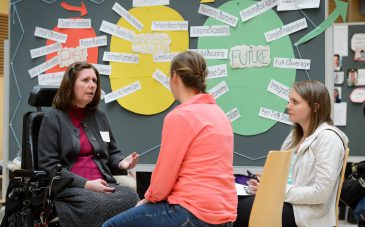
Adapt or integrate an existing program or activity
Students want more opportunities to learn from patients as part of their curriculum. Our patient engagement activities can be customised for your curriculum needs or we can collaborate to design a new activity.
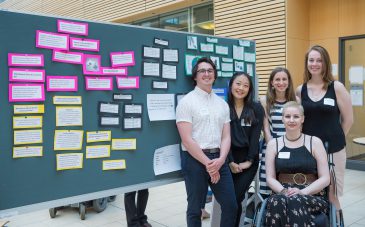
Collaborate on Evaluation or Research
There are many opportunities for interesting and important scholarly work on the outcomes of patient involvement in health professional education. Collaborate with us to design, conduct, present and write up your innovative work
Testimonials
“The nurse who did my infusions was a graduate of the Health Mentors program. He gave me excellent, REALLY excellent patient-centred care. It proves to me how important the work we are doing is and the impact it’s having, not just on the professional careers of those graduates, but also on BC’s health care system. These students are stellar! It’s…”
Health Mentor
“We, as tutors, are very grateful to UBC for giving us the opportunity to install the Program at our Faculty because, as the evidence showed, it is a new window for the students to receive more integral and humanistic training to manage persons with any health condition.”
Visiting Scholar (Universidad del Disarrollo, Chile)
“The Health Mentors Program is remarkable. It was evident that the expertise and capabilities of patients/families are valued and supported and that they are truly seen as partners in education.”
Visiting Scholar (University of Saskatchewan)
“I think there is much to learn from what you have achieved in Vancouver in terms of building a sustainable program, and the deep engagement with your patient community that has driven the work.”
Visiting Scholar (University of Auckland, New Zealand)
“As a Program Director and teacher, I see two key learnings for students: first, the value of seeing the client/patient as ‘expert’ in their own health care and second, the development of interprofessional competencies which is a vital aspect of top class health care.”
Visiting Scholar (Griffith University, Australia)
“Thanks for an insightful workshop that made me think and provided strategies and a perspective on empathy that bridges to patient care for all patients, not just those with a mental illness”
Student (Speech-Language Pathology)
“[She] would challenge us to step outside our comfort zones, but created a learning space where it was safe to do so. I learned that people are way more than the sum of their symptoms.”
Student (Occupational Therapy)
“Learning from our health mentor and each other, we as students have become more mindful of the holistic needs of patients and have been inspired to make a mutual commitment to create meaningful change.”
Former Student (Nursing)
“Overall I was deeply moved by my involvement with the Health Mentors Program, deeply challenged to make sense of my own health journey and deeply thankful for the opportunity to work with the students in my group”
Health Mentor
“In our last session I asked each student to offer to the others (with the others asked to listen and comment on) the top three things each had learned in our year together. I was struck by their thoughtful learnings and discussion and the high level of their synthesis of the material. Throughout this year I observed these students find…”
Health Mentor
“As a Health Mentor, I have the opportunity to share insights, expertise, and experiences that cannot be found in a textbook and is an integral part of the learning experience for the students who are future health care professionals. The icing on the cake is the synergy, friendships, mutually rewarding relationships built, advocacy and vision that is birthed from our 16…”
Health Mentor
“The volunteers enable us to simulate a clinical encounter and add a depth of realism which is simply not possible with role play or other student led activities. They speak from the heart and tell students how it feels to be on the receiving end of treatment.”
Faculty
“If we really want our graduates to have the competencies that are required to really provide good care, it is critical that patients be involved in our education.”
Faculty
“This type of activity is critically important for our pharmacy students, especially in their first year of study, as it sets the stage on the importance of patient-centered care and shared informed decision making.”
Faculty
“We should seize every opportunity to involve health care providers and patients in face to face dialogue where the ‘patients as partners’ ideal is translated into real life interaction. That’s how mutual understanding and respect is nourished.”
Community Organization
“What a wonderful opportunity to meet and dialogue with a young and growing population of students who want to learn about mental health issues. The workshop was what it was because of the students and their open attitude.”
Community Organization
“Advocacy by health professionals is critical to people who are on the dementia journey. This was a valuable opportunity to support geriatric psychiatry residents to develop advocacy skills and awareness of community resources.”
Community Organization
“Being able to learn so much about someone—their family, the barriers in their environment, how certain words carry different meanings for them—is allowing us to learn on a deeper level.”
Occupational Therapy Student
“We are informing the future of health care and I’m so glad to be a part of it.”
Patient
“This program left me with burning optimism for what the future of health care is going to look like.”
Patient
“What makes this work so near and dear to my heart is it allows our students to learn something that they would never get the opportunity to learn. I see what it does for them.”
UBC Faculty
“I think it’s really important that students’ education is enriched by learning about the real lives of patients and what they experienced and how the health care system actually works or doesn’t work.”
UBC Faculty
“I almost urgently had a need for the students to see that I’m a living, breathing human being just like them, and that while I have this big, scary sounding, and in some ways still scary illness that I have to deal with, I function, I have emotions, I have the same needs and those needs include a respect and…”
Patient Educator
